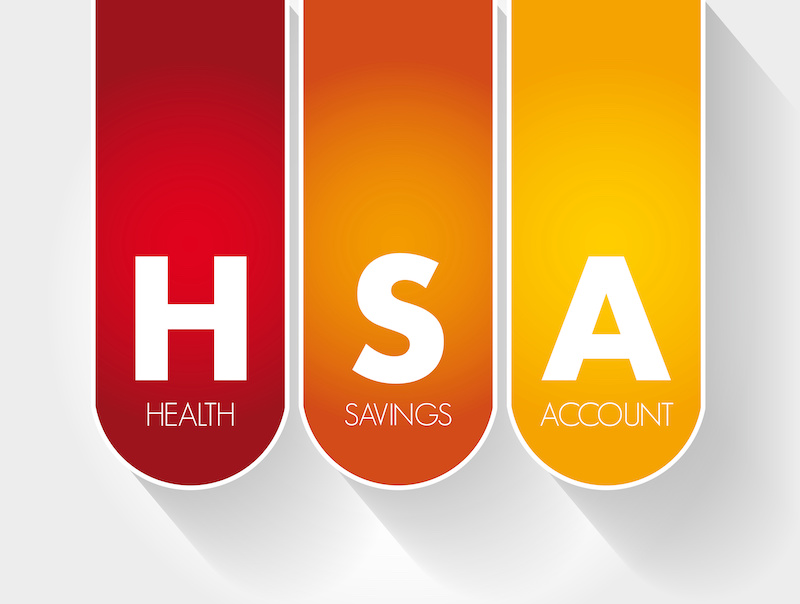

by Gregory S. Ostrowski
Categories:
Leverage Your HSA To Save for Retirement Healthcare
One of the most common questions we get is, “How do I prepare for my healthcare costs in retirement?”
And one of the best answers I can give, as a financial advisor in Annapolis, MD, just might be three little letters: H-S-A.
Health Savings Accounts (HSAs) are designed to lighten your tax burden in three different ways. Money goes in on a pre-tax basis, grows on a tax-deferred basis, and can be spent tax-free on qualified medical expenses.
This article discusses the following:
- Why you should consider an HSA
- The basics of how an HSA works
- Getting the most out of your HSA
- How an HSA can help you increase retirement saving
Not everyone may be eligible to participate in an HSA which are subject to certain requirements and limitations which we will explain.
Why You Consider an HSA
There are many benefits associated with having an HSA. Any contributions you place in it are pre-tax, so you can deduct these contributions from your annual gross income. When you use funds in the account for qualified medical costs, there is no associated tax with those withdrawals.
Given the rising cost of healthcare in America, an HSA is an excellent way to use pre-tax dollars, over time, to save and/or pay for various medical or healthcare-related expenses. A recent study showed that the average retiring couple will need at least $300,000 saved up for medical care in retirement (not including long-term care expenses).
Choosing an HSA to cover your future healthcare costs makes a lot of sense (and often saves you a lot of dollars). An HSA can even help you save on your current taxes, potentially making it an extremely important part of your overall financial portfolio.
The Basics of an HSA
In the simplest of terms, an HSA works like a savings account: You put money in and then you take it out when you need it. However, it’s the specific rules around how you fund the account as well as how that money is spent that make a health savings account different.
Here’s what you need to know:
1. You own the account—and the funds don’t expire.- a. There is no “use-it-or-lose-it” provision with an HSA, so your funds can remain in the account, working for you, as long as you own the account. Because the account does not belong to your employer, you can maintain the account if/when you change employers. You can continue to contribute to the account even if your employer doesn’t offer HSA accounts. Meanwhile, it’s worth noting that some accounts have maintenance fees that add up over time.
-
- Like all good things, there’s a limit to how much you can contribute to your HSA annually. These limits change from year to year, so do your research before making any big financial plans.
-
- Money contributed to an HSA is tax deductible. It grows tax-deferred and then comes out tax-free (as long as it’s spent on medical expenses). Depending on your tax bracket, that’s like saving 30% or more on every dollar you put in.
-
- If you’re under 65, you’ll be subjected to a 20% penalty and income taxes for using your HSA funds for anything other than qualified medical expenses. If you’re older, you’re spared the penalty, but you’ll still owe the taxes due. Be sure to review the rules and regulations of your HSA, and contact a professional if you have questions.
-
- You have to be enrolled in an HSA-compatible health plan, and only in that plan.
- You cannot be enrolled in Medicare.
- You cannot be claimed as a dependent on someone else’s taxes.
If you meet the requirements above, you’re good to go. Additionally, like all savings accounts, the earlier you get started, the better off you are.
Intimidated by Retiring in Today’s Economy? We Have a Checklist To Help Ease Your Fears
Getting the Most Out of Your HSA
Now that you know the basics, let’s talk a little about the details of your HSA. Being enrolled in an HSA-compatible health plan typically means that you will have higher deductions. If you have pre-existing medical conditions that require frequent doctor appointments and/or medications for your condition, you may be better off with a different type of medical plan that has lower deductibles (if your employer offers one).
One unlucky medical event—or even a lucky (but expensive) one like the birth of a child—and thousands of dollars could vanish from your HSA to cover your deductible. With that being said, an HSA is a great plan for younger and/or healthy individuals who don’t usually spend a lot of time (or money) at the doctor’s office.
High Deductible Health Plans (HDHP) are typically lower in cost because their deductibles are much higher based on the premise that you’ll seek routine preventative care and won’t require much more from medical professionals. The HSA is a component of this coverage so you can contribute to the account to pay for any qualified out-of-pocket expenses that may occur.
One of the primary advantages of an HSA is the tax break you can obtain when contributing to the account. Your pre-tax dollars can be used as a deduction to reduce your taxable income each year. This can be a substantial benefit.
A Priority for Retirement Saving
 HSA accounts can be very effective for:
HSA accounts can be very effective for:
- Healthy individuals who don’t typically seek medical attention, other than routine preventative care
- Individuals who are looking for ways to lower their annual income with a tax-advantaged account
- Continue saving towards retirement with any unused funds from an HSA
Assuming that all withdrawals from the account are used on qualified expenses, there are no federal taxes applied, but some states may tax them. When used properly, no other savings account is as tax-efficient. That makes your HSA a valuable way to help maximize your current income for future expenses.
If you think getting one might be right for you, get in touch with Scarborough Capital Management today for retirement planning in Annapolis. We can demystify social security for millennials, as well.

The information provided is general in nature and should not be considered investment, tax, or financial advice. The views expressed are the opinion of Scarborough Capital Management and are not intended as a forecast, a guarantee of future results, investment recommendations, or an offer to buy or sell any securities. The views expressed were current as of the date indicated and are subject to change. Scarborough Capital Management does provide tax or legal advice. You should consult with a licensed tax or legal professional for advice concerning your specific situation.





